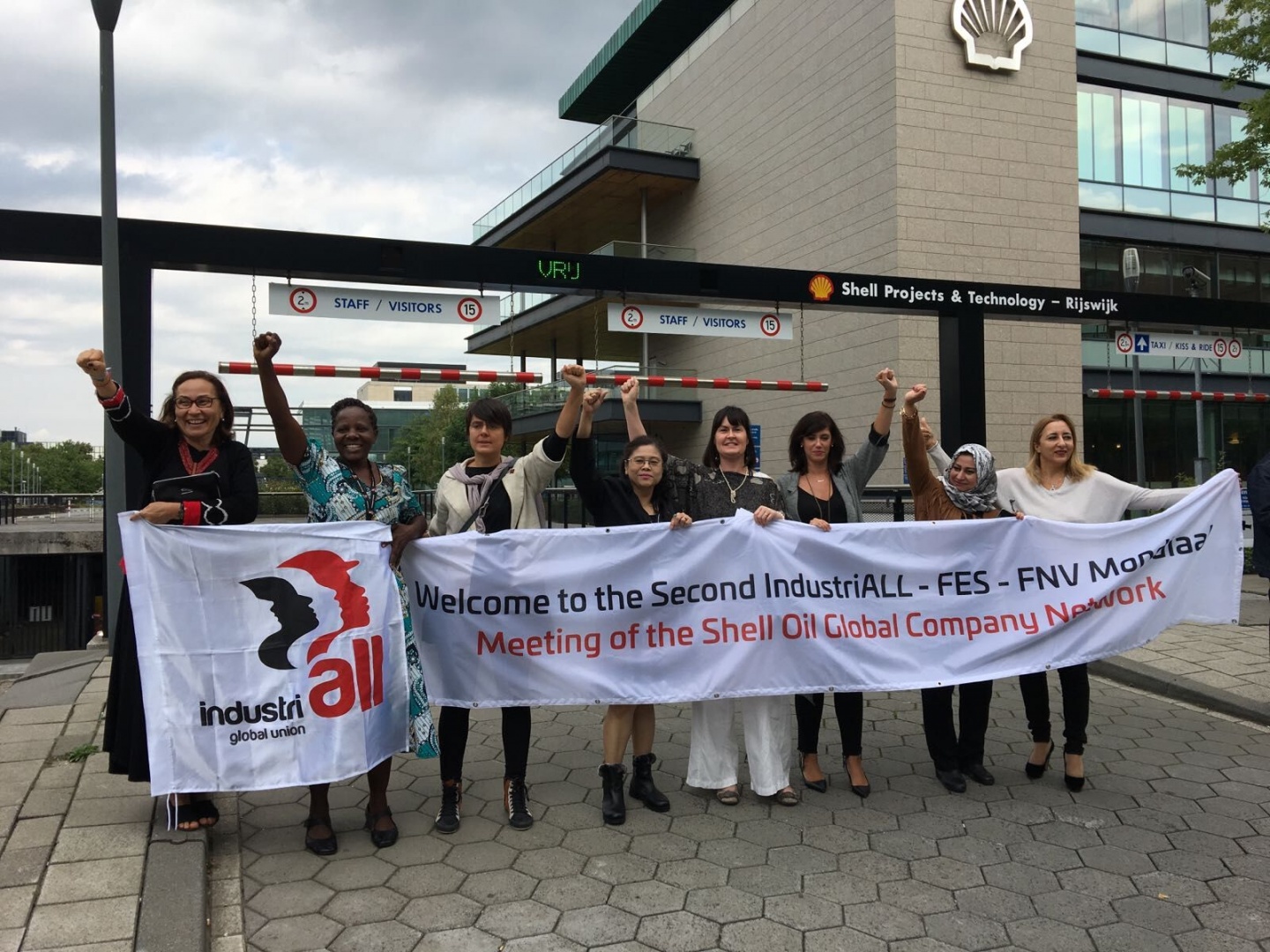Read this article in:
English
27 September, 2016A survey on the use of precarious work at Shell highlights violations of workers’ rights by the company.
The second Shell global union network meeting on 19 and 20 September in The Hague, Netherlands, was an occasion for unions at Shell to report on, and take a strong stand against precarious work at their worksites.
Before the meeting, IndustriALL Global Union conducted a survey among affiliates in 17 countries. Most reported that there was precarious work at their worksite. Precarious workers are outsourced, often temporary workers employed by contractors or temporary work agencies. All regions are affected by this situation.
Reports show that in Nigeria, for 4,500 direct employees, there are 50,000 outsourced workers at Shell facilities. In Pakistan, in the lubricant oil blending plants and oil depots, there are only 38 employees. The 425 other workers are temporary agency workers. In Iraq, at the Majnoon production site, half of the workforce (2,540 workers) works for subcontractors. In the Brent and Central Fields in the northern North Sea, Shell employs 1,500 workers, with an additional 800 workers working indirectly, mainly offshore for the company.
Precarious workers’ rights are violated. These workers face serious obstacles to their freedom of association and collective bargaining rights. Several cases of union busting from Shell and the contractors have been reported, preventing contract workers from joining unions.
Permanent workers also face legal obstacles representing outsourced workers who do not belong to the oil and gas industrial branch. When outsourced workers are unionized by unions representing workers of their industrial branch, they have weaker collective agreements than permanent workers. In almost none of the worksites were precarious workers covered by the same collective agreements as permanent employees.
As a result, besides insecurity, precarious workers at Shell experience poorer working conditions. In the vast majority of the responses, these workers earned lower salaries and benefits than permanent workers. In many cases outsourced workers work long hours, with no paid overtime. They have no holidays.
In some countries, the situation of these workers is alarming: in Pakistan, outsourced workers earn 300% less than permanent workers. In Uganda, in the joint venture with Vivo Energy, precarious workers earn the equivalent of US$ 30 per month - 10 times less than direct employees. In addition, these precarious workers have very low to no social protection at all. This applies to medical coverage and pensions as well. When workers get sick they treat themselves.
At half of the worksites covered by the survey, unions reported higher exposure to health and safety risks for precarious workers. These workers in many cases are less experienced, working longer hours and performing the most dangerous work because they fear being fired or not renewed if they refuse. Unions reported that the accident and fatality rates are higher among precarious workers. In some cases it is difficult for the union to fight the higher accident rate as the company will not even disclose these statistics.
IndustriALL energy director Diana Junquera Curiel said:
“According to our affiliates’ reports, Shell and its suppliers are clearly violating workers’ rights through the abusive use of precarious work. In several countries, precarious workers live in appalling poverty. How can Shell claim in its General Business Principles that respect for people underpins all the work they do? Unions ask the company to enter iton dialogue with them to end this situation.”



